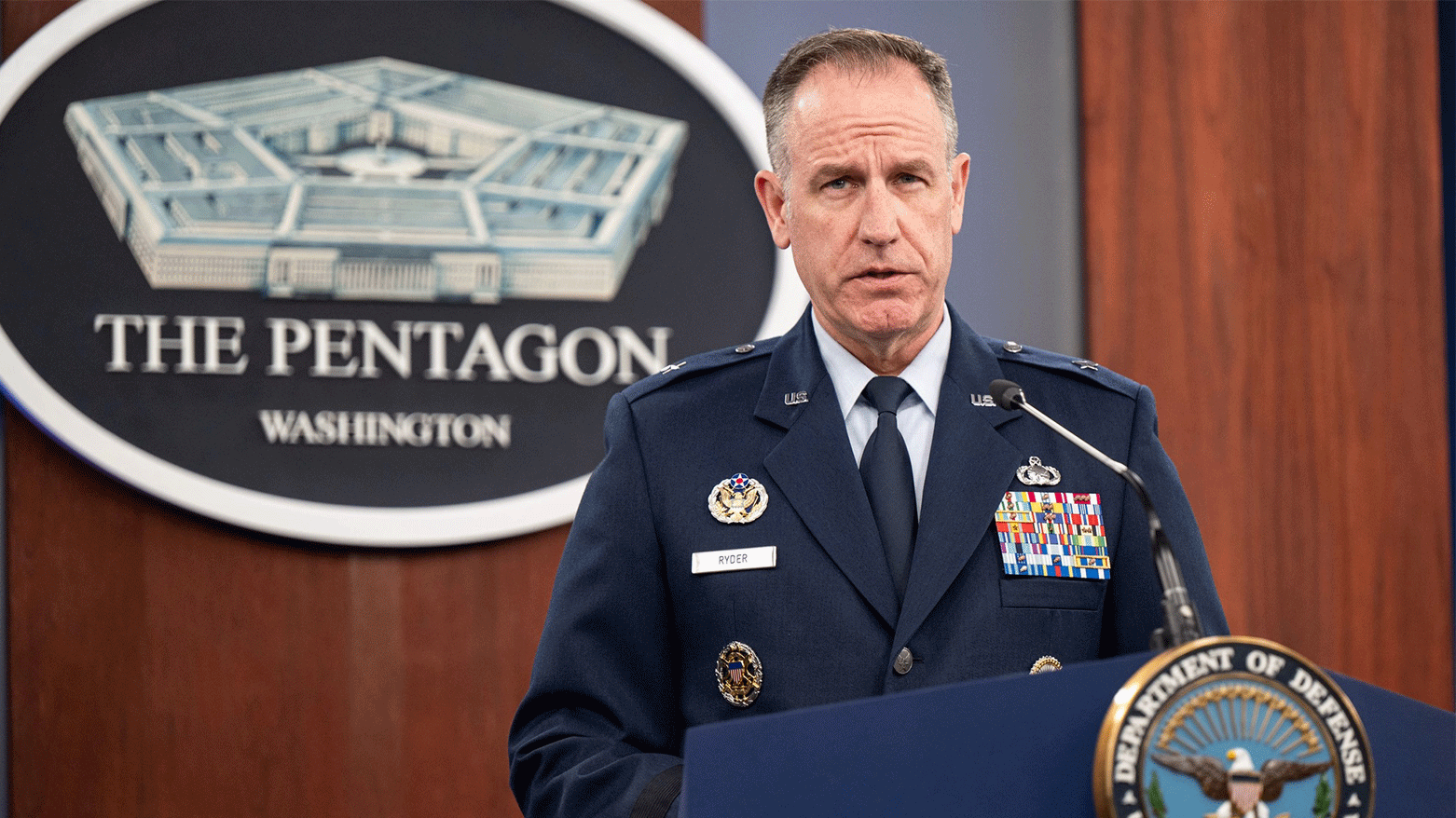U.S. Reiterates Continued Commitment to Fighting ISIS in Iraq, Syria

WASHINGTON DC, United States (Kurdistan 24) –Speaking to reporters on Thursday, Pentagon Press Secretary Maj. Gen. Pat Ryder reiterated Washington’s continued commitment to fighting ISIS in Iraq and Syria.
That has been a consistent U.S. position, ever since the issue arose last month with the announcement that meetings of the U.S.-Iraqi Higher Military Commission (HMC) would resume soon.
Read More: Pentagon: US, Iraq to Discuss Future Security Cooperation—not Troop Withdrawal
Most recently, and most authoritatively, President Joe Biden said it himself last week: we’re committed to the fight against ISIS.
Read More: Biden: Response to Deadly Attack on Troops ‘Will Continue’—as U.S. to Maintain Forces in Iraq, Syria
The meetings that the Prime Minister of the Kurdistan Regional Government (KRG), Masrour Barzani, held last month with senior U.S. officials are related to this policy. On the sidelines of the World Economic Forum in Davos, Switzerland, Barzani met National Security Advisor Jake Sullivan and Secretary of State Antony Blinken.
However, the Iraqi government has suggested otherwise. That is because it has been under significant pressure from Iran and its proxies in Iraq to end the U.S. military presence there, Thus, Baghdad officials have wrongly claimed that the renewal of the HMC meetings aim to terminate the U.S. military presence.
But the talks are about transitioning from the current U.S. military presence in Iraq, as part of the anti-ISIS Coalition, to a military presence as provided by a bilateral security accord, based on the agreements concluded between Washington and Baghdad in late 2008 in the last months of the George W. Bush administration: the Strategic Framework Agreement and the Status of Forces Agreement.
Pentagon Reiterates: We’re Committed to anti-ISIS Mission
The issue arose on Thursday, as Ryder was asked about the assaults by pro-Iranian militias on U.S. forces. He responded, “We have not seen an attack against U.S. forces in Iraq and Syria since February 4th.”
“We’ll maintain our focus on the mission that we’re there to do,” he continued, “which is the enduring defeat of ISIS.” But “again, if our forces are threatened or attacked, we maintain the inherent right of self-defense and will take appropriate action.”
Toughened U.S. Position
The Biden administration initially seemed satisfied with a “tit-for-tat” response to the increased attacks on U.S. forces in Iraq and Syria that accompanied the war in Gaza. Indeed, the administration seemed to spook itself with its own cautions about not expanding the conflict.
But with the limited U.S. response, the attacks on U.S. troops continued, and the inevitable happened: on Jan. 28, three U.S. soldiers were killed in a militia strike on a base in northeast Jordan.
Their deaths prompted a much stronger declaratory position from the White House. And it was backed by much more serious military strikes against those militias.
The U.S. carried out those strikes on Feb. 3.
Read More: U.S. Says Attacks ‘Must Stop Right Now,’ as it Strikes IRGC, Militias in Iraq, Syria
The next day, on Feb. 4, a drone attack on a U.S. base in northeast Syria killed six troops from the Syrian Democratic Forces (SDF), America’s main partner in the fight against ISIS in Syria.
Read More: Six SDF members killed in drone strike on US base in Deir ez-Zor: SDF
Then, five days later, on Feb. 8, U.S. Special Forces conducted an attack in southern Baghdad They targeted the Kata’ib Hizbollah commander responsible for directing attacks in Syria.
The U.S. troops launched an explosive drone against a car carrying Wissam Mohammed Sabir al-Saadi, who used the nom de guerre, Abu Baqir al-Saadi. The attack occurred in an eastern Baghdad neighborhood, poorer and predominantly Shi’ite, which Al-Jazeera characterized as “a stronghold for armed factions.”
Read More: Pentagon Details Results of U.S. Strikes in Iraq, Yemen
Possibly, the two strikes explain the lull in militia attacks on U.S. troops, although when asked about that possibility, Ryder declined to speculate.
